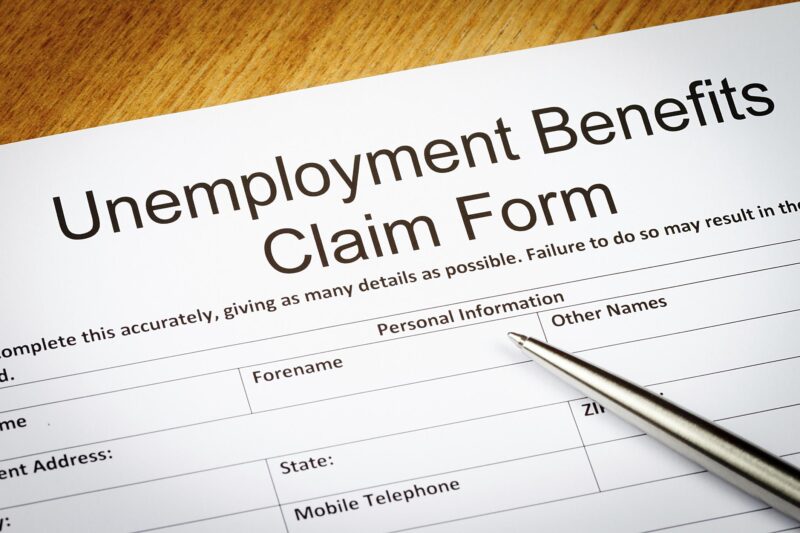The unemployment rate in the United States is at a record low. However, this does not mean that people are finding work any easier. In fact, many Americans are still struggling to find jobs and make ends meet.
The can i get unemployment if i have covid is a question that many people are asking. In the past, it was possible to get unemployment benefits even if you had coverage from another country. Now, however, it’s impossible to do so.
Jobs that don’t require a college diploma
Some individuals are having difficulty finding employment since they are unable to qualify for numerous positions due to a lack of a degree or certification. They believe they will be relegated to entry-level jobs in fast food or retail for the rest of their lives.
Working your way up the corporate ladder without any formal education may be a lengthy and arduous process.
Fortunately, some jobs pay well and don’t need any additional education or qualifications. Take a look at some of these choices for ideas on what you might do for a living.
Driver
Do you like being behind the wheel with nothing but the wide road front of you? Being a driver may be the perfect match for you, whether you like to travel alone or with a group.
There’s always the option of becoming a restaurant delivery driver, but many individuals are now earning a livelihood through ridesharing applications like Uber and Lyft.
If you have the potential to get a commercial driver’s license, a whole new world of opportunities opens up for you. You may drive to local freight hubs to distribute goods.
You may even become a beloved school bus driver if you don’t mind dealing with misbehaving youngsters. These occupations are in great demand, and getting your CDL is simple.
Dispatcher
Those who are good with people and have great phone skills may discover their calling in dispatch. As a dispatcher for police enforcement and emergency medical personnel, you might work for the county. This isn’t your only choice, however.
You may also work for a trucking business as a dispatcher or in any other position that needs employees to communicate with their home base.
Service to Customers

If you don’t have a college diploma, customer service jobs may seem to be the logical choice. If you have excellent people skills, this area of service may open up a lot of doors for you.
You might work as a customer service representative for a large corporation, assisting customers with their concerns and issues. Others may want to work as a postmaster or a flight attendant.
Customer service job includes things like working as a virtual assistant from home or working as a receptionist. If you want to be successful in your new venture, you must be excellent with people.
Landscaping
Some individuals have a green thumb and like spending time in nature. If you don’t mind spending long days behind a mower or lugging a weed eater, landscaping may be a good match.
Landscapers and groundskeepers are in charge of the outside upkeep of both residential and commercial facilities.
Aides in Personal Care
A personal care assistant assists people with everyday activities that they need to live, such as cooking and cleaning. You may be a good match for this kind of job if you have a strong desire to assist others.
In most cases, you will be working within a person’s house to assist them with activities that they are having difficulty with. You may be matched with elderly patients, handicapped people, or even youngsters who need assistance with everyday tasks.
Childcare
While establishing a daycare in your house may not be the best option for you, you can definitely explore childcare options in your neighborhood. You may provide babysitting services or nanny services for a family and their children after school.
If this seems like something you’d want to do, you may advertise yourself as a childcare expert on sites like Care.com.
Additionally, this website enables you to apply for elder care, school assistance, cleaning, and pet care jobs. It’s a fantastic method to put oneself out there for any employment opportunities that may arise.
Your Free Wealth-Building Guide
Get access to our daily email as well.

Thank you for registering to receive our financial education newsletters. Confirm your subscription by checking your email. Check your spam and promotional folders if you haven’t received the email within an hour.
Please read our Privacy Statement and Terms of Service.
Get Back on Your Feet with These Money-Saving Tips
Now that you know where to look for a new work, you must plan for the possibility of something else occurring in the future. At this time, it seems doubtful that benefits will be restored to their previous levels under the CARES Act and the American Rescue Plan.
You must be prudent with your money management in order to be prepared for another financial catastrophe if it occurs.
In a savings account, you should have three to six months’ worth of expenditures put away. If you’ve been jobless for a long time, you’re probably nowhere near having this much money in your savings account.
Saving this much money may take a long time, but it should be your ultimate long-term aim.
While this is an admirable aim, you may want to start with something a little more manageable. It is suggested that you put aside at least $1,000 for unexpected expenditures such as medical bills, vehicle repairs, and other miscellaneous costs. For the most part, this is a more attainable objective for most individuals at first.
Don’t stop saving after you’ve arrived! Continue saving until you have a fully filled emergency fund in case anything unexpected occurs.
How do you come up with the money to put away in case of a financial emergency? Here are some money-saving suggestions to assist you in getting back on your feet.
Reduce Your Spending
The most apparent method to increase your savings for future crises is to reduce your current expenditures. Create a comprehensive budget that shows where your money goes at the end of each month.
If you’re anything like me when I first began, you probably have no idea where your money goes every month. Print your bank statements and add up your expenditures for common categories such as groceries, eating out, and entertainment.
This will offer you a more accurate picture of where your money is being spent.
Get creative with methods to cut the fat once you know where you’re spending. Consider going natural or coloring your hair with a store-bought box if you spend hundreds of dollars each month at the hair salon.
Cable subscriptions may be costly, so a streaming provider or two may be all you need. Plan to cook at home instead of going out to dine to increase the number of meals you prepare.
While having to inform pals that you won’t be able to join them out on the town may be a big disappointment, cutting down on expenditures is sometimes the only way to start digging out of a financial hole.
Invest in yourself by putting money aside.

Most individuals have their bill payments automated, and invoices are automatically deducted from their bank accounts. Similarly, you should do the same with your savings account. Set up an automated transfer from your checking account to your savings account.
Arrange for a modest amount to be deducted from your checking account and sent directly to your savings account on paydays.
This guarantees that you are actively saving money and that you do not spend it. If money isn’t accessible in your bank account, you won’t be inclined to spend it.
As an additional incentive, consider opening a savings account with a bank that is more difficult for you to access. If you have to travel across town to take money from your savings account, you are less likely to withdraw money for non-essentials on a frequent basis.
Bring a Lunch
If you are lucky enough to obtain a new job fast, you may be tempted to dine out with all of your new colleagues during your lunch break.
Keep in mind how fast this may mount up. Even if they choose fast food over higher-end takeaway, most individuals will spend at least $7 or $8 on a meal at a local restaurant. If you do this five days a week for four weeks a month, you’ll have spent at least $140.
Pack your own lunch to save money on entertainment and dining out.
Reduce your grocery bill
You may discover that you are spending more money on groceries now that you have decided to cut down on your eating out. It’s time to take a deeper look at this budget line item and see where you can save money.
It may sometimes be as easy as choosing the shop brand over the name brand.
You may, however, be more inventive with the foods you prepare. Purchase less costly cuts of beef or prepare a few meat-free meals each week. If you are really resourceful, you may even start couponing to save money on things that you would have bought otherwise.
Lower Your Energy Bills
You may have noticed that your energy bill has increased since you’ve been at home full-time for a while. This is one area where you may make some savings without losing too much comfort. Increase the temperature on your thermostat by two to three degrees.
Make sure that all of the lights in the rooms that you aren’t in are turned off. In general, be more aware of all the ways you use energy so you may begin to reduce your use and save money.

Your Free Wealth-Building Guide
Get access to our daily email as well.
Thank you for registering to receive our financial education newsletters. Confirm your subscription by checking your email. Check your spam and promotional folders if you haven’t received the email within an hour.
Please read our Privacy Statement and Terms of Service.
What Should You Do Now That You’re No Longer Unemployed?
You may be worried right now if you were one of the millions of individuals impacted by the abrupt termination of prolonged jobless benefits. To maintain a roof over your head and food on the table, you need to find a new employment fast.
Fortunately, you may find work in a variety of areas, including online job boards and famous freelancing websites. This might even be a good moment to go out on your own and start a new company in your neighborhood with little expenses.
Some individuals are concerned because they lack a college diploma or certification. Don’t worry, there are lots of employment accessible for people with no formal schooling.
You may work as a driver, a receptionist, a customer service representative, a landscaper, or a personal care assistant. This kind of job has limitless potential.
Once you’ve started a new job, make sure you’re saving enough money to cover any unexpected expenditures that may arise in the future. Reduce your costs by packing your lunch, lowering your energy or food bills, and getting rid of cable television to build up that emergency money.
Make sure to pay yourself first and set up automatic monthly savings.
Being stuck without unemployment benefits may be terrifying, particularly if you’ve been relying on them for the last year and a half to make ends meet. The good news is that there are plenty of open jobs, so go out there and discover the perfect career for you!
Unemployment benefits are done, but there are things you can do to help yourself. You can get unemployment if you have to quarantine for 2 weeks. Reference: can i get unemployment if i have to quarantine for 2 weeks.
Related Tags
- covid-19 unemployment benefits $600
- pandemic unemployment
- what to do when pua unemployment benefits are exhausted
- check pua claim status
- peuc unemployment



